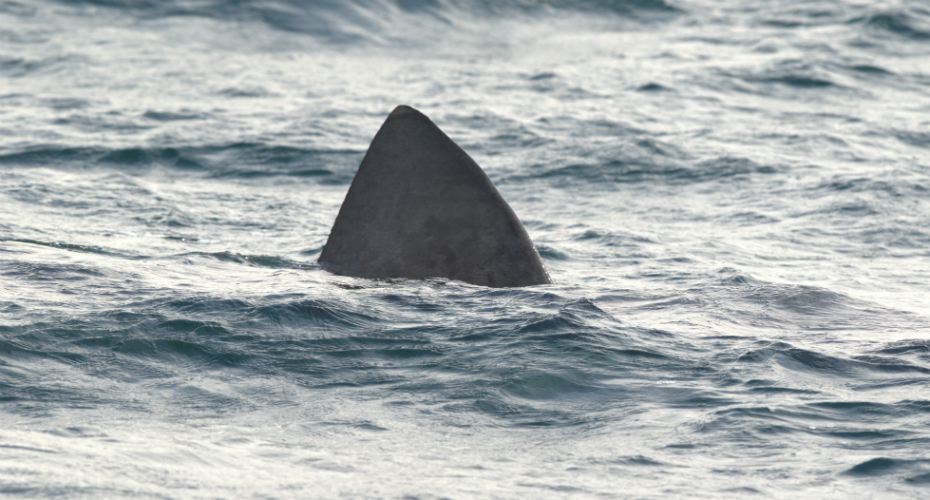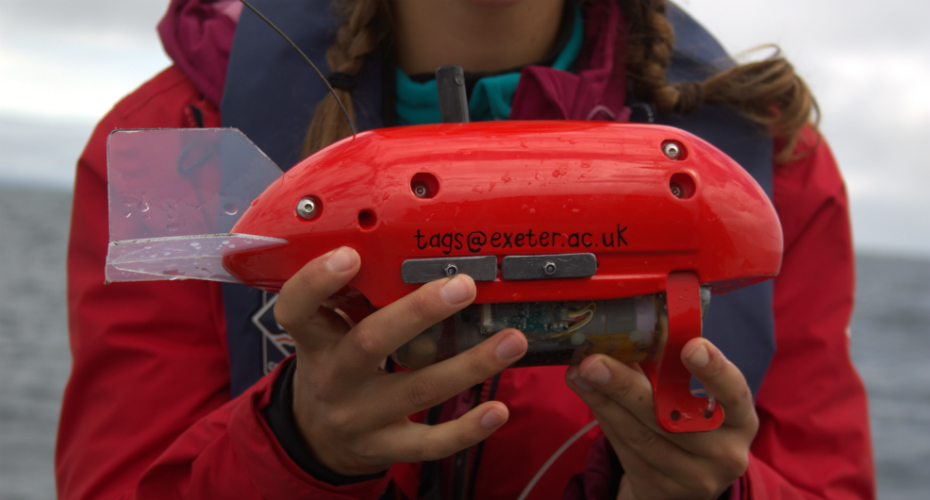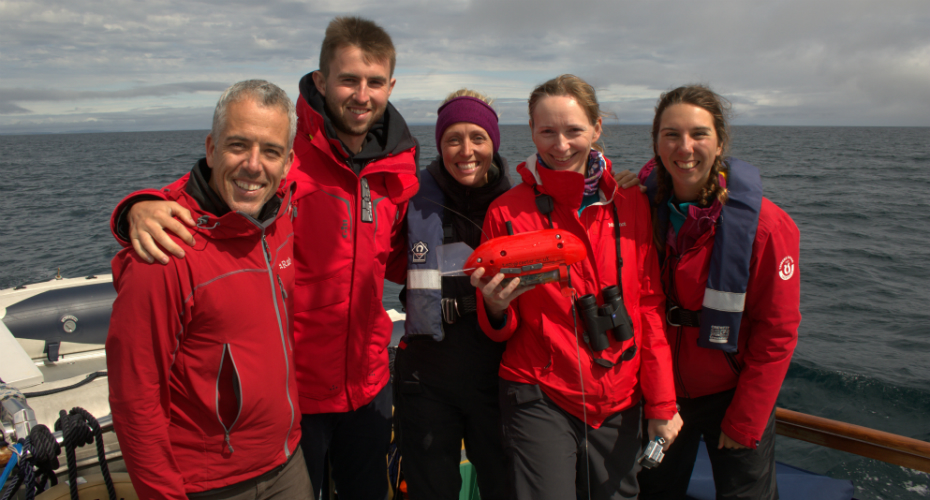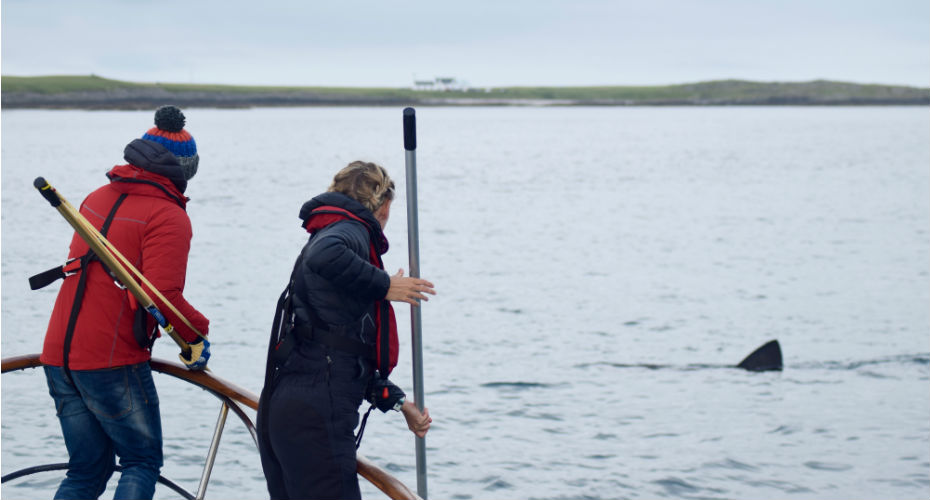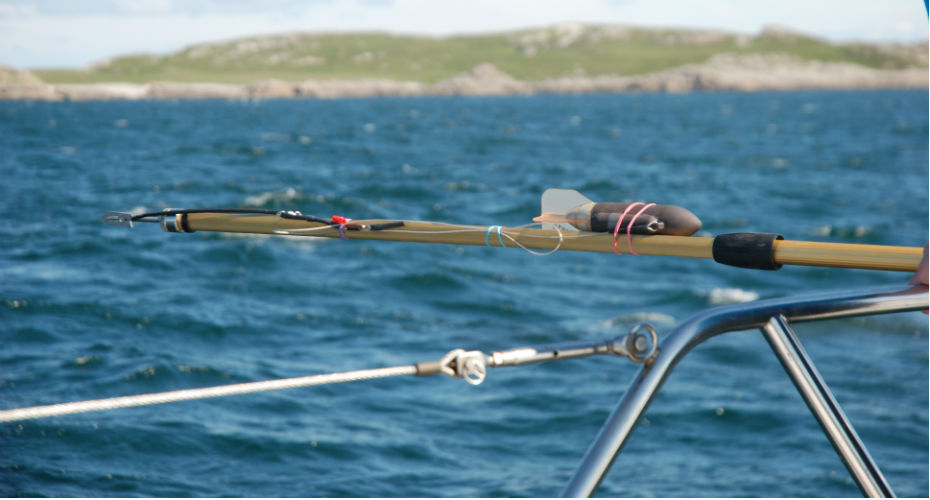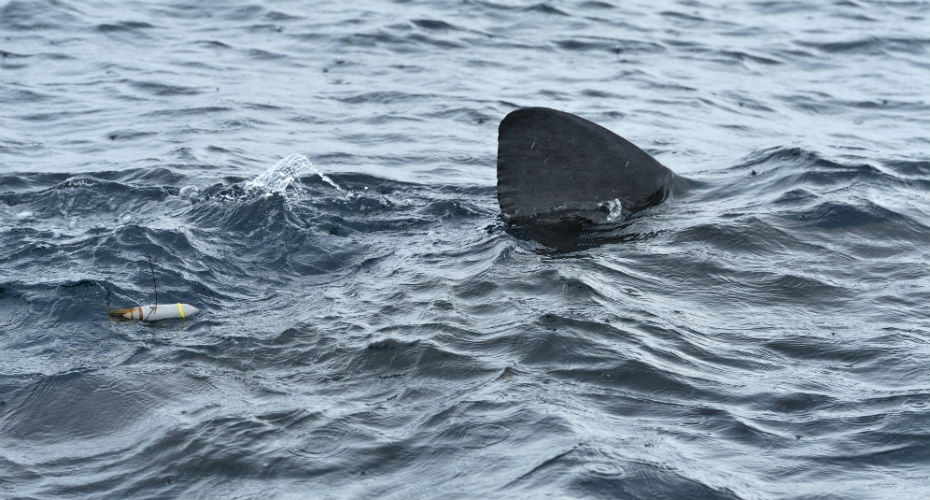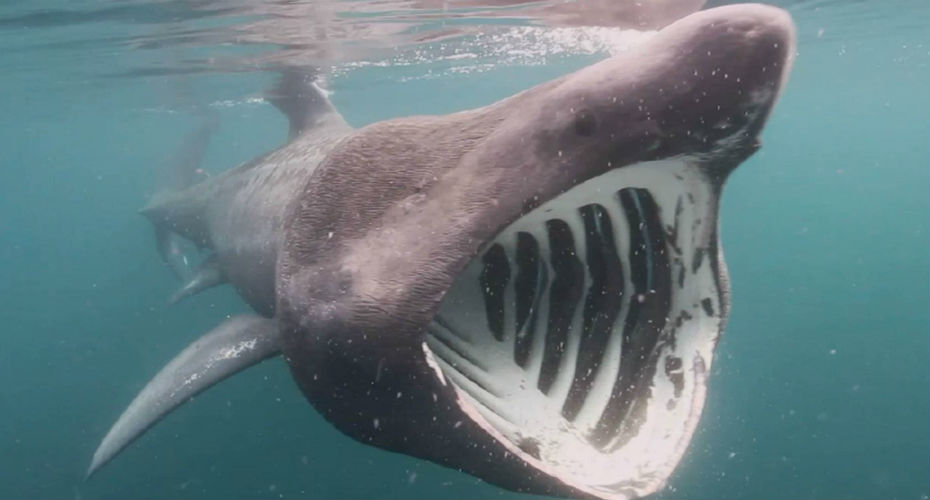This is a joint research programme undertaken in collaboration with Scottish Natural Heritage (SNH).
Point-of-view video data gathered from basking shark towed camera systems.
Basking shark satellite tracking
Basking shark satellite tracking
As part of a continuing project, the University of Exeter and Scottish Natural Heritage (SNH) have attached tracking tags to 70 basking sharks, which are considered vulnerable to extinction, in the sea around the Inner Hebrides, off Scotland’s West Coast, since the summer of 2012.
These tags have demonstrated that the Sea of the Hebrides is a vital place for basking sharks, which return to the waters there year after year. The latest research by the team is finding out why – using movement sensors and cameras attached to the sharks to try to discover whether they are breeding in Scottish waters. The breeding sites for basking sharks remain a mystery.
This research conducted by University of Exeter academics and collaborators has directly informed design and formation of the Sea of the Hebrides Marine Protected Area, which is a critical area for British marine wildlife, including minke whales, common dolphins, cormorants and gannets. The project is also using the data to delineate a basking shark awareness zone, that will balance environmental interests with industry and recreation. Find out more here: SNH website.

We are constantly in awe of these incredible marine giants – and the more we find out about them the more important the Sea of the Hebrides appears to be. The site is an incredibly special place, with basking sharks feeding there, breaching out of the water, and potentially breeding. Basking sharks were once hunted in large numbers in Scottish waters and we hope that our work can help in their recovery, as well as to protect Scottish marine wildlife for everyone to enjoy in the future.
Dr Matthew Witt, Senior Lecturer in Natural Environment / Project Principal Investigator

